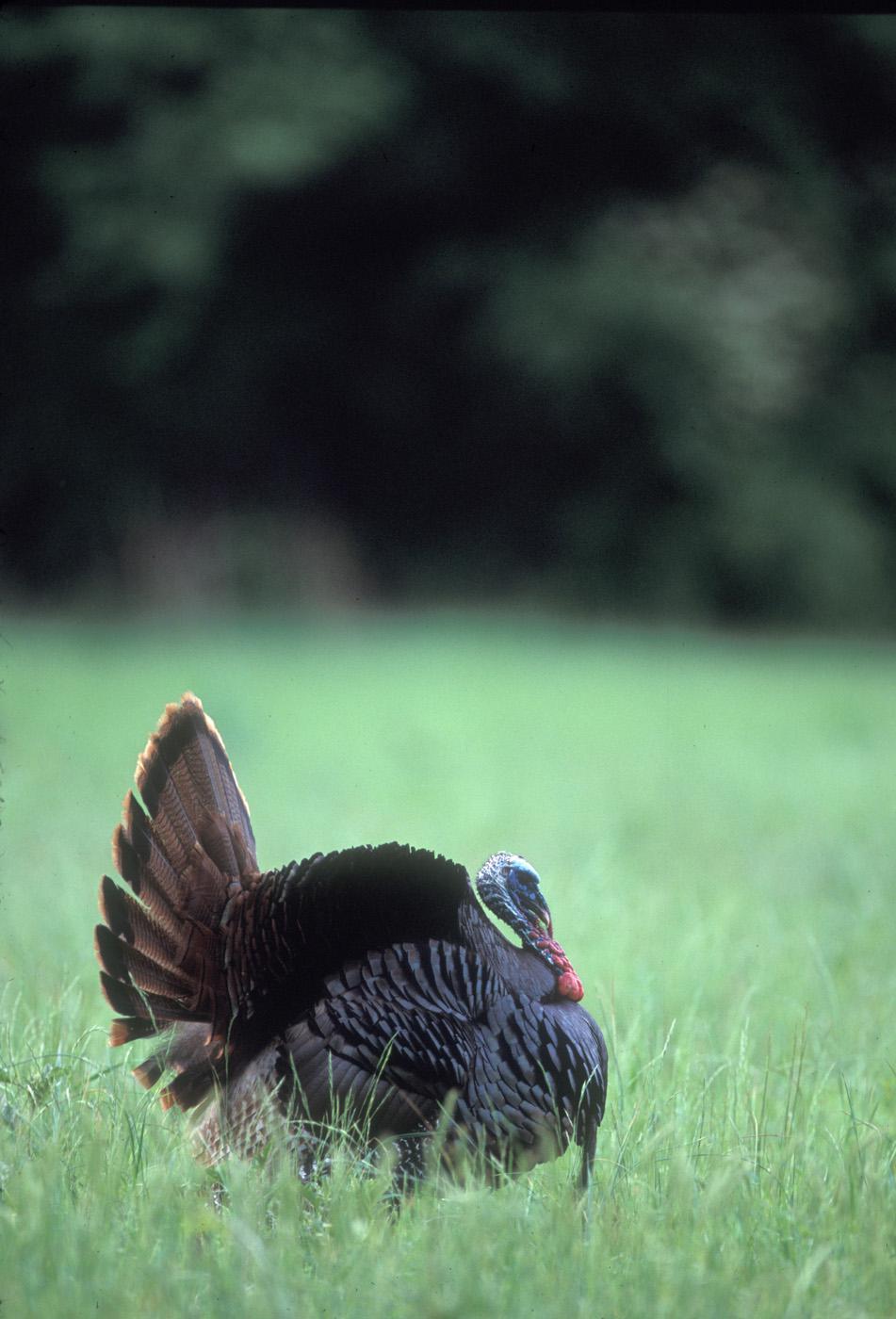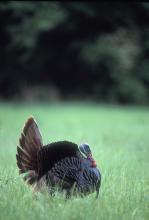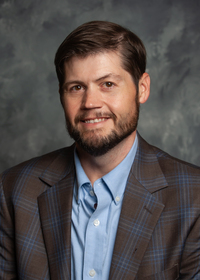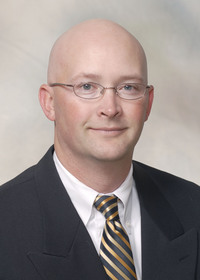Information Possibly Outdated
The information presented on this page was originally released on October 1, 2009. It may not be outdated, but please search our site for more current information. If you plan to quote or reference this information in a publication, please check with the Extension specialist or author before proceeding.
Research shows gobbler activity varies by area
MISSISSIPPI STATE – Turkey hunting is a popular sport throughout Mississippi, and the sound of a gobbler responding to a call is unrivaled for the more than 30,000 hunters who spend mid-March to May in search of the elusive bird.
While the season is set in spring for the entire state, many hunters have expressed concerns over the time frame as it relates to peak gobbling activity.
“Hunters have long thought that spring gobbling activity peaks at different times in different regions of the state,” said Dave Godwin, wild turkey program coordinator for the Mississippi Department of Wildlife, Fisheries and Parks. “However, little research has been done to qualify this perception.”
A normal gobbling pattern usually consists of three phases: rise, stabilization and fall. The rising phase typically occurs between the first and second weeks, the stable phase from weeks two through four and the falling phase from weeks four to six, Godwin said.
Mississippi State University’s Forest and Wildlife Research Center initiated a study to determine if there is variability among the regions in wild turkey spring gobbling.
“We examined 2006 and 2007 survey data collected in Arkansas and Louisiana to help us refine our gobbling survey technique,” said Francisco Vilella, MSU’s wildlife and fisheries professor and project investigator.
Vilella said the Arkansas data showed a difference of 1.5 days for gobblers heard per day between the northern and southern parts of the state. In contrast, the Louisiana data showed a difference of less than a half-day.
A short project at the Noxubee National Wildlife Refuge in 2007 further refined the technique of detecting turkey gobbles and also helped determine logistical needs for the first statewide spring gobbling survey for Mississippi.
“The pilot study helped us determine how many individuals it would take to survey the entire state in a short amount of time,” Vilella said.
Matt Palumbo, an MSU wildlife and fisheries graduate student, began the statewide surveys in 2008. He employed undergraduate students and technicians to survey the southern and northern portions of Mississippi.
“We placed eight survey routes north of Highway 82 and seven routes south of Highway 84 from mid-February to late May,” Palumbo said. “The routes were in areas characterized by hardwood saw timber, pine saw timber and pine regeneration.”
The 2008 spring gobbling survey found a difference of approximately 10 days between the northern and southern portions of Mississippi.
“Spring gobbling activity peaked around April 7 for the southern portion of the state and around April 17 for the northern region of the state,” Palumbo said.
The results are markedly different from the spring gobbling data obtained for the neighboring states of Arkansas and Louisiana. The spring gobbling survey was replicated in 2009 with similar results.
“We are currently conducting data analyses to investigate the influences of weather, age and population rate on gobbling activity,” Vilella said. “We are also exploring factors that may help explain why there is a difference in peak gobbling activity between the northern and southern areas of Mississippi.”
The results will serve as the basis for long-term monitoring of spring gobbling activity across the state to enable biologists to adapt hunting seasons around gobbling activity.
“Mississippians have a rich tradition of turkey hunting, and over the last three decades the state has consistently boasted one of the largest turkey populations in the country,” Godwin said. “This study will help the Mississippi Department of Wildlife, Fisheries and Parks ensure that our hunting season framework best fits the peak gobbling activity throughout the state.”
Contact: Dr. Francisco Vilella, (662) 325-0784







